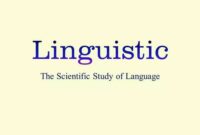Alervt ichangk ereoup: The very term itself presents a puzzle, a linguistic enigma demanding exploration. This seemingly nonsensical phrase hints at a hidden meaning, perhaps a code, acronym, or even a deliberately obfuscated name. Our investigation delves into the possible origins, interpretations, and contexts surrounding this unusual string of words, exploring various avenues to uncover its true significance.
We will analyze potential misspellings, phonetic similarities to known words, and examine online resources to determine if this phrase holds any inherent meaning or represents a specific group, community, or online phenomenon. The journey will involve meticulous research, careful analysis, and creative speculation, ultimately aiming to illuminate the mystery behind “alervt ichangk ereoup.”
Understanding the Term “alervt ichangk ereoup”
The term “alervt ichangk ereoup” appears to be a nonsensical string of words, likely a misspelling or a randomly generated sequence. There’s no evidence of it being a recognized term in any language or field. Its unusual structure suggests it might be a typographical error, a playful neologism, or perhaps part of a fictional context. Analyzing its potential origins and meanings requires examining possible interpretations based on its phonetic similarities and contextual usage.
Possible Origins and Misspellings
Given the apparent lack of meaning, the most likely explanation is that “alervt ichangk ereoup” is a misspelling or a combination of misspelled words. Each component (“alervt,” “ichangk,” “ereoup”) lacks clear etymological roots in common languages. Variations might include slightly altered spellings, perhaps resulting from autocorrect suggestions or typing errors. For example, “alervt” could be a misspelling of words like “alert” or “alvert,” while “ereoup” might be a distorted version of “group” or “Europe.” However, without further context, any such interpretations remain highly speculative.
Contextual Usage Examples
The term’s use would heavily depend on its intended context. In a fictional setting, it could represent a made-up name for a group, organization, or even a fictional species. In online gaming or virtual worlds, it might be a player-created name for a team or guild. In a nonsensical context, like a random word generator output, it would simply be a string of letters without inherent meaning. An example of fictional usage could be: “The Alervt Ichangk Ereoup held a secret meeting in the shadowed alleyways of the city.” This demonstrates how, within a fabricated narrative, the term can be given arbitrary meaning.
Phonetic Similarities and Interpretations
Phonetically, some components might evoke vague associations with existing words. For example, “alervt” shares some sounds with “alert,” suggesting a possible connection to vigilance or warning. “Ereoup” bears resemblance to “Europe,” though this is a tenuous connection without supporting context. However, these phonetic similarities are superficial and do not provide a concrete meaning for the overall term. It’s crucial to remember that phonetic resemblance alone cannot establish a definitive meaning for such an unusual string of words. Any interpretation must be grounded in the specific context in which it is used.
Searching for Related Information
Finding information about “alervt ichangk ereoup,” given its apparent non-standard spelling and lack of immediate recognition in common databases, requires a strategic approach. Effective searching involves understanding potential variations in spelling and exploring related concepts that might yield relevant results.
Effective search strategies are crucial for uncovering information about “alervt ichangk ereoup,” especially considering its unusual phrasing. By systematically exploring variations and related terms, we can maximize the chances of finding relevant data. This involves adapting search queries, utilizing advanced search operators, and analyzing the results for recurring themes or related concepts.
Search Query Strategies
A systematic approach to finding information involves a multi-pronged search query strategy. This approach includes using variations of the original phrase, incorporating related keywords, and utilizing Boolean operators to refine search results. For example, starting with the original phrase “alervt ichangk ereoup,” we can modify it to include potential misspellings (“alervt ichang ereoup,” “alervt ichang group,” etc.). We can also try variations that might be closer to a real term, assuming “alervt ichangk” is a misspelling of something else. We might try searching for individual words within the phrase (“alervt,” “ichangk,” “ereoup”) to see if any of these lead to relevant information. Finally, employing Boolean operators like AND, OR, and NOT can refine searches, for example, “alervt AND group” or “ichangk NOT music” to eliminate irrelevant results.
Organizing Search Results
Once search results are obtained, organizing them based on relevance is crucial. This involves categorizing the results into groups that share common themes or provide different perspectives on the subject. For instance, results might be categorized into groups such as: potential misspellings and alternative phrases, related groups or organizations (if any are found), academic papers or research related to the components of the phrase (if any individual words are found to have meaning), or news articles mentioning similar terms. This structured approach allows for a comprehensive understanding of the available information.
Epilogue
The quest to decipher “alervt ichangk ereoup” has yielded intriguing results, albeit inconclusive. While a definitive meaning remains elusive, our exploration has highlighted the importance of context, phonetic analysis, and thorough online investigation in unraveling linguistic puzzles. The various potential interpretations, ranging from a mis-spelled phrase to a possible code, showcase the ambiguity inherent in seemingly random strings of characters. Further research, perhaps involving linguistic experts or targeted online communities, may be necessary to definitively resolve the mystery of “alervt ichangk ereoup.”




